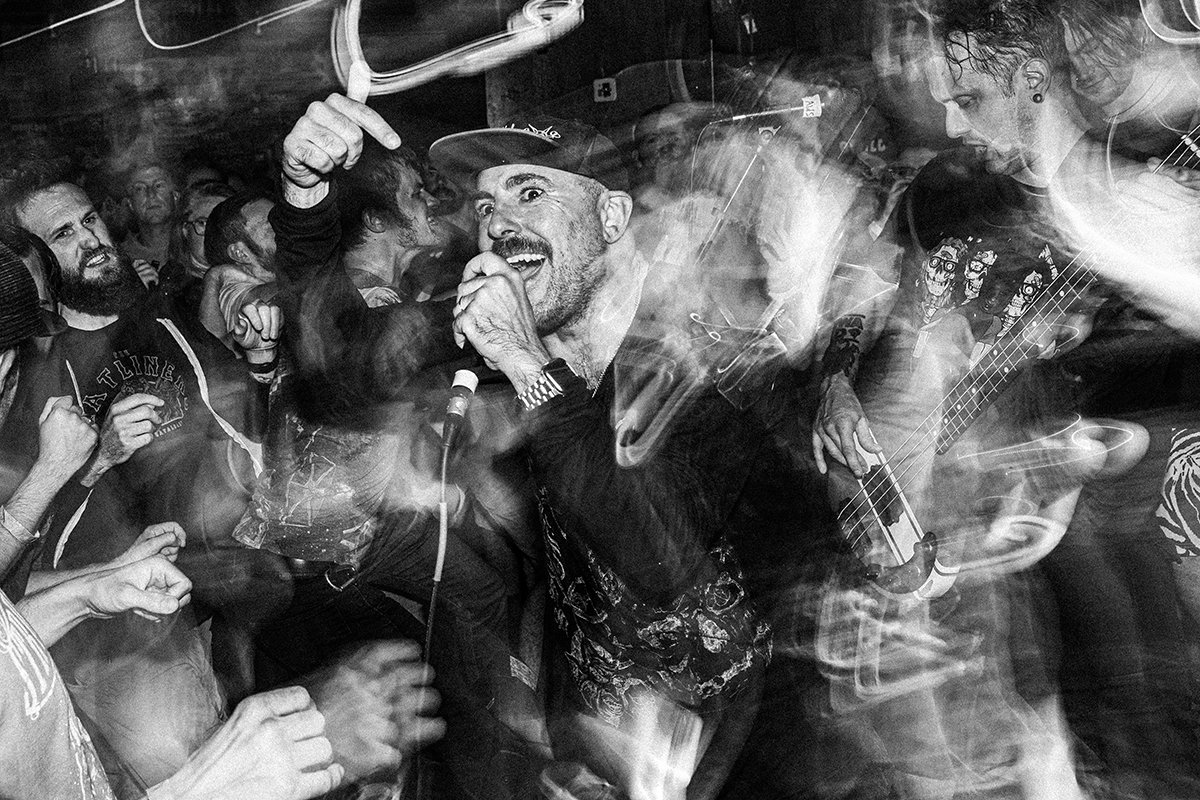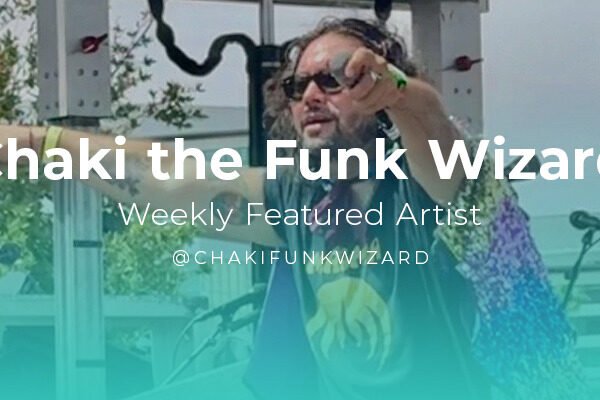When it comes to solitary music discovery, I find that the most satisfying method for me is discovery through association, by which I mean finding a new artist or band because they’re associated in some way to music you already know and love. Maybe they’ve toured together, are label mates, share band members, or have featured on each other’s songs; if you like one and they’ve collaborated with the other, chances are you’ll dig them too. Comeback Kid‘s excellent 2010 album Symptoms + Cures contains three tracks featuring great guest vocalists, all of which I checked out back when I first heard that record in high school: while I already knew and loved Cancer Bats, Architects and A Wilhelm Scream were unknown quantities. And while I was never able to get behind the British metalcore outfit, the technical and melodic hardcore of New Bedford, Massachusetts natives AWS was right up my alley. I ordered their 2003 album Mute Print online and it arrived just in time for a summer roadtrip from DC to Maine with my parents; alongside Mastodon‘s Leviathan and Lana Del Rey‘s Born to Die, it spent the whole trip on constant rotation, and it shot up my favorite albums-ranking like a rocket.
Slotting in between the rough waves of Mastodon‘s sludgy ocean and the glamorous decadence of Lana‘s rise to superstardom, A Wilhelm Scream existed in a relative middle space of intense musicianship and catchy hooks. From the onset, I was drawn in by Nuno Pereira’s rough vocals, characterized by its gruffness and yet always able to carry a tune when least expected, as well as the incredible interplay between the bass and both guitars. I play the bass, and in my teens was still apprehensive of bands where the guitars went out to play while the bass was relegated to the duty of keeping the rhythm anchored. But on Mute Print, all the string instruments are continuously interlocking in joyous sonic play, accompanied by the intense drumming of Nicholas Angelini. AWS was my first foray into melodic hardcore, and in the decade since discovering them, I haven’t run into any other band that plays a similar style of music who holds a torch to them. The greengrocer who delivers produce to the café I work at wears an apron that reads ‘no somos los únicos, pero sí los mejores‘ (‘we’re not the only ones, but we are the best‘), and I think that same slogan applies to A Wilhelm Scream‘s music: dynamic, hard-hitting and snarky done near perfectly, like the song “Boat Builders” off 2013’s Partycrasher:
‘We sweat like boat builders and
Marvel at our work
Smiling at the imperfections‘
A Wilhelm Scream was formed in 2004 by Trevor Rilley (guitar/vocals), Nuno Pereira (vocals), and Nicholas Pasquale Angelini (drums), as a continuation of sorts to their previous band, Smackin’ Isaiah, which in turn had morphed from other bands going back almost a decade; rounding out the line-up were original guitarist Chris Levesque and bassist Jon Teves. Smackin’ Isaiah toured tirelessly for years without ever garnering label support, but after entering the Blasting Room with Bill Stevenson (of Descendents, All, and Black Flag fame) and Jason Livermore to record their debut album, Mute Print, the band were able to attract the attention of Nitro Records. There’s a youthful aggression pulsing at the heart of Mute Print that the band channels marvelously into half an hour of twisting guitars and shout-along belters that showcases their amazing musicianship. If there was an eagerness to prove their mettle, they leave no doubt as to their talents and dedication. The band toured extensively following their debut’s release, continuing to hone their skills and strengthening their brotherly bonds (AWS were unavailable to collaborate for this piece, but in every interview I have read they seem like the most loving family).
The partnership with Stevenson and Livermore proved to be rewarding and satisfying for both parties, as the band headed into the studio with them the following year in order to record Ruiner, which would end up being Teves’s last album with AWS. In spite of coming out little over a year after the debut, Ruiner is a completely different beast compared to their debut, as the quintet sounds freed from any apprehension that might have circled their minds tackling that first studio effort together. As a whole, Ruiner showcases a lighter side of the band in the lyrics and song titles, as well as featuring Rilley’s sung vocals more prominently, while introducing more metal-leaning guitar elements to their sound. The songs are also generally shorter than on Mute Print (most clock in at under three minutes), and seem to function more like interconnected pieces of a whole system, whereas the songs on the debut seem more self-contained. The album’s brilliant opener, “The King Is Dead”, featuring an extended guitar intro, would also signal the more intricate direction they would head in on their following album. Ruiner was a great success with the band’s fanbase, and I’ve often found people online mentioning it as their favorite AWS record.
For their third album, released in 2007, A Wilhelm Scream again decided to entrust production and recording duties to Stevenson and Livermore, capping off their collaborative trifecta with what is undoubtedly the technical pinnacle of the band’s career, and one humble writer’s favorite album of theirs. Career Suicide sees Brian J. Robinson fitting in perfectly in Teves’s stead, as the synchronicity he shows with the tried and true duo of Rilley and Levesque is stunning, even more so considering the band really upped the ante with the complexity and technicality of their compositions, which also feature more tempo and dynamic shifts than before. “The Horse” is probably the band’s song most known for showcasing this technical aspect of theirs, and Robinson shines like the damn sun throughout, with a mind-boggling tapping section setting the tone near the beginning of the song. Everyone shines all through the album’s 13 tracks, forming a record that sounds leagues more cohesive and mature than they were only a few years prior. Career Suicide would also see the departure of guitarist Chris Levesque, although he left us with an absolute gem, and he would be replaced by Mike Supina the following year.
Following the break-neck pace at which A Wilhelm Scream released their first three records, the wait for album #4 proved to be extensive, as it wouldn’t arrive until 2013 (although they did release a self-titled EP in 2009). It seems that the longer wait was due to the band’s decision to take everything they learned from Stevenson and Livermore and not only take on the task of producing and engineering their next album by themselves, but in their own space, as they upgraded Rilley’s father’s studio with new equipment. The ensuing album, Partycrasher, saw the band heading in a thrash metal-influenced direction, with heavier riffs, a thicker mix and a more sluggish sound, especially compared to the nimble essence of Career Suicide‘s interplay. And the long wait was completely worth it, as A Wilhelm Scream feel like a band renewed, energetic, positive and euphoric like they had never sounded on tape. This isn’t an aside to their earlier work, each of their albums have their strengths, and I would say that robust feeling of joie de vivre is one of Partycrasher‘s strongest points, as well as the strong sense of space that permeates the album, New England’s blue collar ethos and seafaring heritage present in the artwork and the lyrics. And while the band would continue to deliver on stage year after year, it wouldn’t be ’til 2022 that they would deliver another record. For anyone outside the loop (as I was), it seemed like that fifth album would never come.
Following the experience recording Partycrasher, Rilley and his wife dedicated the ensuing years to the construction of a new recording studio, Anchor End Studios, where the band will record all future albums. Mike Supina stepped down as guitarist in 2018, and this change to the band’s dynamic was further complicated by the COVID-19 pandemic, which paused the album’s development. In 2021, with the studio completed and Jason Milbank (also of Senses Fail) an official member of the band as Supina’s replacement, recording of Lose Your Delusion was completed. The band’s fifth full-length is an amalgamation of the various facets of A Wilhelm Scream‘s long history, showcasing their penchant for catchy vocal melodies, their melodic abilities, their rhythmic prowess and Nuno Pereira’s untiring belt. I haven’t heaped enough praise on Nuno throughout this article even though he is one of my favorite hardcore vocalists, whose distinct and contagiously energetic vocal style is also one of the band’s trademarks. Lose Your Delusion would be a fitting record to close any career, although luckily it sounds like it’s only the beginning of a new era for the band, who sound as invigorated as if they were just getting started.
A Wilhelm Scream truly is a band that never stops giving. My love affair with them started with Mute Print that summer in Maine, and even though in the following years I wasn’t initially able to really appreciate Ruiner and Career Suicide, the months of lockdown gave me the opportunity to reassess and find one of my favorite bands, with what is honestly one of the most solid discographies I have ever had the pleasure to discover; I really can’t find any negatives to their records, only varying strengths depending on the release. Pick any record to start off and enjoy, if you’re a fan of punk music or killer guitar playing, you’ll also fall in love.







